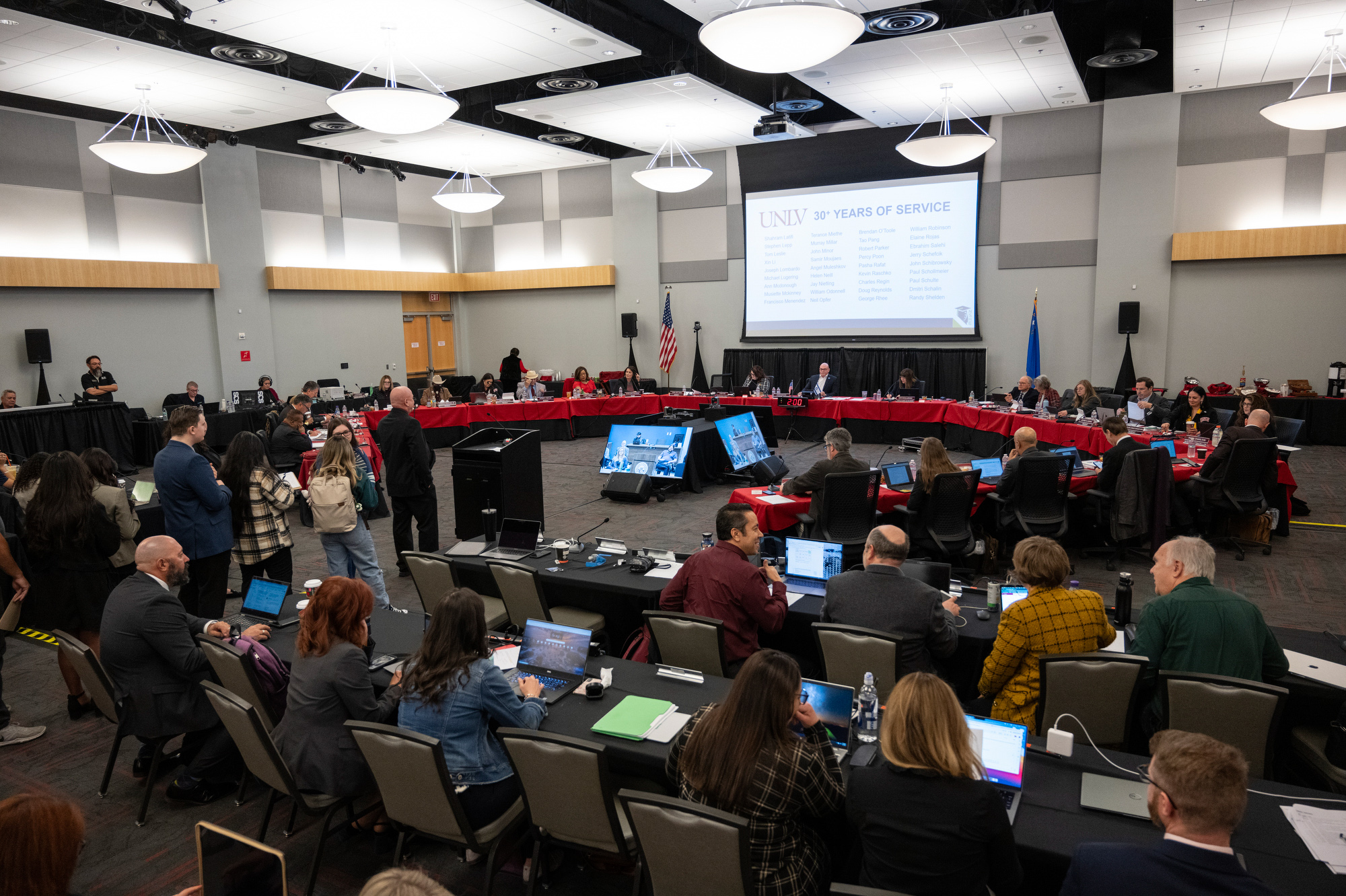It’s deja vu all over again when it comes to Question 1 on the 2024 ballot, as voters once more have a chance to remove the constitutional status of the elected Board of Regents who oversee higher education in the state.
Voters rejected a similar effort on the 2020 ballot, but what’s different this time (if anything) and what would Question 1 actually do if passed?
Summary of what it does: Question 1 would remove all references to the Board of Regents from the Nevada Constitution, nullifying its constitutionally established status. Instead, it would authorize the Legislature to “review, reform and improve the programs and operations” of public universities and require biennial audits of public higher education institutions.
The amendment also removes references to the board as it relates to the proceeds of public lands donated to support public institutions of higher education.
Though the proposed amendment would remove the constitutional language, it would not repeal or affect other existing laws applying to the Board of Regents, such as the board’s authority to govern and manage the Nevada System of Higher Education or the processes for electing board members.
How did we get here?: Nearly four years ago, a similar ballot measure (which also appeared as Question 1) removing the Board of Regents from the Nevada Constitution narrowly failed by about 3,800 votes, or 0.3 percentage points out of the 1.2 million votes cast.
In the 2021 legislative session, lawmakers restarted the process of getting another question on the ballot through the introduction of SJR7 — a legislatively referred constitutional amendment, meaning it needs to be passed in two consecutive legislative sessions and then approved by voters before taking effect.
Supporters of the measure chalked up its earlier failure to confusing language — the version on the 2024 ballot no longer contains language enshrining protections for academic freedom, and includes a new requirement for biennial audits of the higher education system.
SJR7 easily passed in the 2021 and 2023 legislative sessions, securing its place on the 2024 ballot.
What have other states done? Nevada is among 28 states with a single administrative board overseeing all higher education institutions within its borders. Nevada is the only one among those states that elects all members of its higher education oversight board through a general election. Most other state boards are filled by appointments by governors or legislatures, or sometimes a combination of the two.
The arguments in favor: Supporters of Question 1 — a broad coalition of legislators, business interests and some higher education students and faculty — say the measure will help provide more oversight for the Board of Regents.
The text of SJR7 cites legal cases from 1948 and 1981 and incidents in which “the Board of Regents has asserted that its ‘unique constitutional status’ gives it ‘virtual autonomy and thus immunity’ from particular laws and policies enacted by the Legislature.”
Sponsor Sen. Marilyn Dondero Loop (D-Las Vegas) said in 2023 that it would allow lawmakers to exercise “informed and measured governance of NSHE” and have more flexibility when considering reform proposals.
Dondero Loop emphasized that the measure wouldn’t remove the public election of regents, and the measure is only focused on “taking [the Board of Regents] out of the Constitution.”
Assemblywoman Heidi Kasama (R-Las Vegas), who presented the bill with Dondero Loop, said last year that the board has “virtually unparalleled power within state government to control and manage higher education spending without the same level of legislative oversight typically applied to other executive branch agencies.”
Kasama said the amendment’s changes, including a biennial legislative audit, will bring an “enhanced level of transparency” and trust to the state’s higher education system.
The measure passed with bipartisan support in the 2021 and 2023 legislative sessions.
SJR7 cruised relatively easily through the 2021 legislative session, passing 20-0 (1 excused) in the Senate and 30-11 in the Assembly, with most opposition concentrated in the minority Assembly Republican caucus. In 2023, members of the Assembly voted 34-7 to pass it, with one lawmaker excused, and members of the Senate voted 20-1 to pass the measure.
The arguments against: Members of NSHE and the Board of Regents have staunchly opposed both attempts to take the board out of the Constitution. Many have complained that proponents have not adequately explained how it would address problems within the state’s higher education system in a way normal legislation would not, and have said lawmakers are infringing on the will of the voters who already voted down the measure once.
In hearing testimony during the 2023 legislative session, board Vice Chair Joe Arrascada likened the push to resurrect the failed Question 1 to 2020-style election denialism.
“This new resolution is blatantly questioning the voters’ will,” Arrascada said. “To many of your constituents, this do-over is similar to an election denier of the same 2020 cycle.”
In a neutral statement submitted during the 2023 legislative session, members of the Nevada Faculty Alliance wrote that taking away constitutionally protected independence for the board made them “very concerned about academic freedom and the potential for political interference in curriculum and academic standards,” especially in light of efforts in other states to limit what higher education institutions can teach.
Primary funders: Data from political ad-tracking organization AdImpact indicates that almost no money has been spent on advertising for the ballot measure. When a similar ballot measure went before voters in 2020, nearly $1 million was raised in its favor, and no group mounted a coordinated opposition effort.
Financial impact: No fiscal notes — a description of the anticipated financial effect on state agencies — were submitted in either the 2021 or 2023 legislative sessions for SJR7.
Intern Kelsea Frobes contributed reporting to this story.

